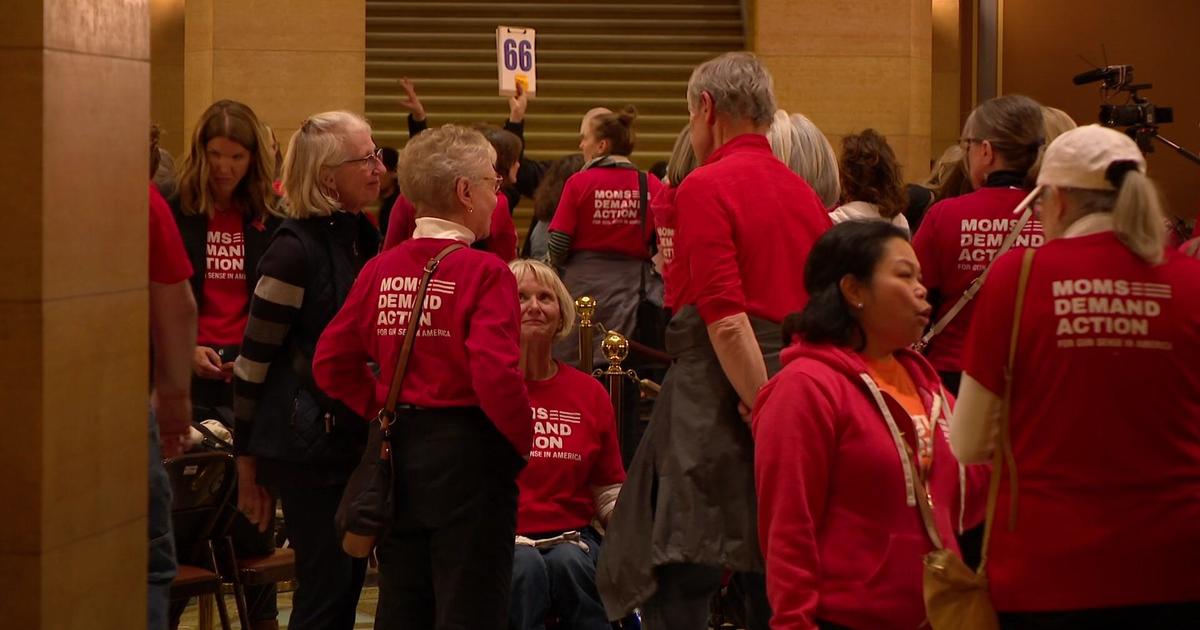5 Things To Know About Minn. Legislative Session
ST. PAUL, Minn. (AP) — Minnesota lawmakers flock back to the Capitol on Tuesday for a legislative session expected to run 12 weeks at most.
Having set the two-year budget last year, lawmakers face a shorter list of legislation they must consider this time. And it's always easier to get in the way of proposed laws than to enact them.
Here are five things to know about the session:
1. IS FRIDAY PAYDAY?
The talk at the Capitol will be what to do with extra money rather than how to erase a budget deficit, for a change.
A projected surplus stands at $825 million. But that figure gets revised on Friday with an economic report from state finance officials.
The trend line suggests the pot of available money is more likely to grow than shrink. Since November, the state has scooped up $255 million more in tax revenue than it was expecting. It's not as clear, though, how spending obligations are matching up with earlier predictions.
State leaders are divided about where the money should go. Democratic Gov. Mark Dayton, House Democrats and Republicans in both chambers want a big chunk to go for tax cuts or to cover elimination of some of the new taxes imposed last session. Majority Senate Democrats suggest building up the state's rainy-day accounts.
There's also ample talk of paying cash for construction — from roads to government buildings — that the state might otherwise borrow money to undertake.
___
1. 'UNSESSION' OBSESSION
Dayton hopes Minnesota lawmakers will spend as much time pruning the statute books as they do adding to them. He's attached the "Unsession" mantra to his goal.
The governor's idea is to do away with outdated laws or speed up things like construction permitting. He plans to release a comprehensive slate of proposals next week.
Legislative Democrats have identified a few dozen boards or commissions that they argue have outlived their usefulness and could be scrapped.
But the "unsession" theme has been open to vast interpretation. Republicans see it as an invitation to fire at old targets. They want to press for changes to the state's nascent health insurance marketplace known as MNsure and to initiate new debate over the $2.1 billion in tax hikes enacted last spring.
___
1. POT-POURRI
Every session has its attention-grabbers, and this year's might be marijuana.
A group of lawmakers is pushing to legalize the drug for medical purposes. The Legislature approved a medical marijuana bill in 2009, but it got vetoed by Republican Gov. Tim Pawlenty. For now, Dayton isn't on board either, citing objections of law enforcement. But recent discussions between the sides have centered on whether the drug could be permitted in pill, liquid or inhaler form. A prohibition on smoking marijuana would remain in place.
Hearty debate could also surround a bill to do away with a law requiring liquor stores to close on Sundays. It's a perpetual fight that ban supporters usually win with ease. But a more-organized network of those seeking to overturn the law has cropped up and lawmakers are getting swarmed with contacts.
In the vein of vices, lawmakers are also set to consider regulations on electronic cigarettes. Under one proposal, the smokeless devices would be treated more like traditional tobacco products and be prohibited in schools, explicitly illegal to sell to children and subject to local control ordinances.
__
1. CAPITOL CONSTRUCTION
Navigating the legislative maze to track how a bill is faring is one thing. Navigating the Capitol itself has become another.
Crews are charging ahead with a $272 million renovation of the century-old building. That's turned the place into a plywood palace, with corridors being sealed off and the sound of hammers echoing throughout. For now, the major work is in the basement but will move floor-by-floor until expected completion in 2017.
Visitors will find that some former public gathering spaces have been turned into temporary offices. Big patches of the Capitol lawn have been turned into asphalt parking lots.
Any disruptions this year pale with what's to come. In 2016, the Minnesota Senate plans to hold its session away from the building.
___
1. TAKE IT TO THE TRAIL
Expect the session to become something of a test drive for fall campaign themes.
Dayton is up for re-election and all 201 House seats are on the line. Democrats have a 73-61 advantage in the House, meaning the GOP needs to gain seven seats or more for control.
Democrats want to stoke a message that the state's outlook is strong, while Republicans are trying to make a case that one-party rule has pulled Minnesota too far left.
The Senate, also led by Democrats, isn't on the ballot again until 2016. That could add intrigue to end-of-session negotiations because Dayton and the House could be more desperate for deals than the Senate's leadership.
(© Copyright 2014 The Associated Press. All Rights Reserved. This material may not be published, broadcast, rewritten or redistributed.)



